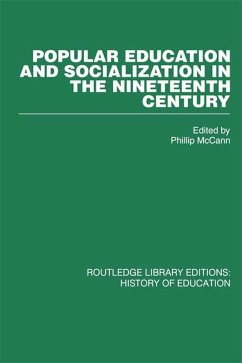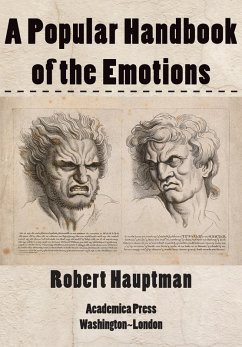
An Essay on the Evils of Popular Ignorance (eBook, ePUB)

PAYBACK Punkte
0 °P sammeln!
In "An Essay on the Evils of Popular Ignorance," John Foster presents a compelling examination of the societal ramifications of widespread ignorance, articulating a call for intellectual engagement and enlightenment. Employing a blend of persuasive rhetoric and poignant philosophical insights, Foster critiques the complacency often found within the populace, revealing how ignorance can lead to moral decay and hinder progress. The literary style reflects the early 19th-century Enlightenment values, marked by clarity and depth, as Foster navigates the topics of education, civic responsibility, a...
In "An Essay on the Evils of Popular Ignorance," John Foster presents a compelling examination of the societal ramifications of widespread ignorance, articulating a call for intellectual engagement and enlightenment. Employing a blend of persuasive rhetoric and poignant philosophical insights, Foster critiques the complacency often found within the populace, revealing how ignorance can lead to moral decay and hinder progress. The literary style reflects the early 19th-century Enlightenment values, marked by clarity and depth, as Foster navigates the topics of education, civic responsibility, and the pursuit of knowledge within a rapidly changing societal landscape. John Foster, a prominent essayist and critic of his time, was influenced by the tumultuous socio-political climate of early 19th-century England. His experience in witnessing the struggles surrounding education and public discourse deeply informed his perspective on the importance of intellectual awakening. Foster's passion for literature and moral philosophy is evident throughout the essay, as he strives to illuminate the dangers of passive ignorance while promoting enlightenment as a vehicle for social progress. Readers seeking a profound understanding of the intersections between knowledge, morality, and social responsibility will find Foster's essay both enlightening and relevant. This work not only stimulates critical thought but also serves as a timely reminder of the importance of fostering an informed and thoughtful society.
Dieser Download kann aus rechtlichen Gründen nur mit Rechnungsadresse in A, B, BG, CY, CZ, D, DK, EW, E, FIN, F, GR, H, IRL, I, LT, L, LR, M, NL, PL, P, R, S, SLO, SK ausgeliefert werden.













